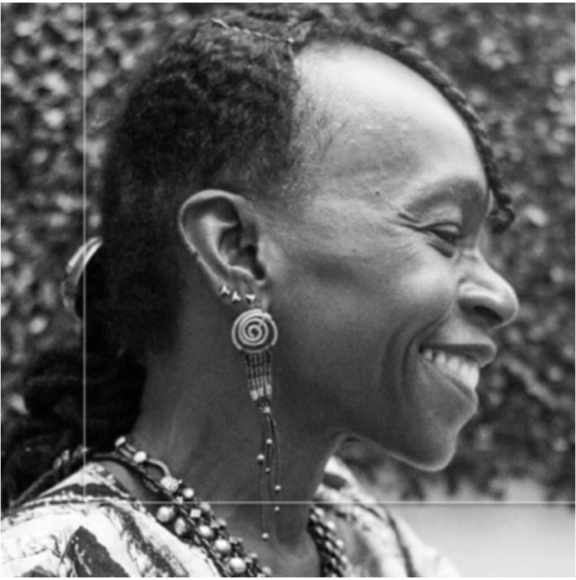
Artist Sana Musasama. (courtesy of CU Boulder)
Visual artist Sana Musasama led a virtual lecture March 9, hosted by the University of Colorado Boulder Arts and Art History Program. The lecture focused on her personal artwork, which addresses themes of feminism, culture, and community through a ceramics emphasis.
As an avid world traveler, Musasama gained her greatest artistic inspiration from seeing and experiencing different parts of the world. Her travels have spanned widely, from Cambodia to West Africa to Vietnam and beyond, and encompass a number of cultures, language, and lifestyles.
“I grew up learning about people from around the world, about different languages spoken, foods eaten, and clothes worn,” Musasama said. “I grew up with this love of difference instead of a fear of difference, so it wasn’t hard for me to begin traveling around the world thirty years ago.”
The world is Musasama’s art studio. She creates ceramics as she travels, shipping pieces back to her home studio. Her ceramics mirror the journeys she embarks on, such as surfacing resembling foods at Vietnamese markets, or forms reminiscent of Burmese temples. Each detail allows her artworks to tell intricate stories of people from across the globe and the impact they had on her.
“Art is really about a particular person, in a particular place, at a particular time,” said Musasama.
Along with her passion for seeing the world, Musasama invests in activism and community work, using art as an outlet for healing and change. One such installment arose as Susasama worked in the felony defenders program, C.A.S.E.S, engaging with adolescents who were previously imprisoned. The program took children out of jail and taught them life skills, as well as engaging them with art. Susama came up with a concept to repurpose glass tiles from old tables, making them into public art pieces displayed in lower Manhattan.
Musasama continues her art activism through work with the Somaly Mam Foundation, which rescues sex trafficking victims in Cambodia. Her work with this foundation has lasted fourteen years and continues to the current day. Along with learning life skills, the girls were introduced to art as a way of healing. Musasama led long-lasting art projects including doll and apron making, as well as other crafts and art pieces.
“I always tell my students that you don’t have to be a feminist or a woman to protest violence against women or little girls or another human being,” Musasama said. “You just have to be human.”
Not only does activism weave its way into her practice, but so does feminism. As Musasama traveled to different villages all over the world, women and girls were the ones that led her and protected her. As a result, Musasama built a sense of community with these girls all over the world, forming bonds and long-lasting friendships.
“When I travel, I meet women who have daughters,” Musasama said. “The daughters become my guide and travel with me. I’m their mother as they lead me through village life, and then it switches like the seasons, and they become my mothers. They become more adult-like about things that I wouldn’t be aware of in their culture that would endanger me.”
Musasama has seen a myriad of practices, rituals, and attitudes that occur towards women across the world. Musasama has witnessed beautiful rituals and difficult ones, taking in all of the different perceptions of women and incorporating them into her art.
“It’s like coffee percolating in a pot. The experiences I have can be ones that are heart-shattering,” Musasama said. “They keep coming up, so I write about them, study them, travel about them. Then I feel this overwhelming presence that I have called my extra heartbeat. It’s then when I pick up my material and build.”
Musasama’s impact also stretches into her mentoring and teaching in the arts. When asked about advice for aspiring young artists, Musasama encouraged students to take risks and experience life fully.
“Follow your passions, look for joy in life, be unstoppable, and share your work,” Musasama said. “Take risks beyond the comfort of what you know.”
As of now, Musasama continues her engagement with activism through her work with the Somaly Mam Foundation, as well as engaging in marches and protests. She also continues with education and the arts. Her next ceramics project is called Topsy Turvy Dolls, a set of ceramic dolls, which provide African girls a doll that resembles their distinct beauty.
Contact CU Independent Staff Writer Bailey Diamond at Bailey.Diamond@Colorado.edu
